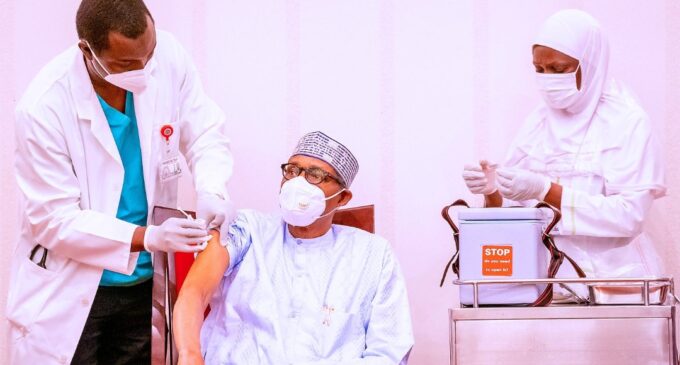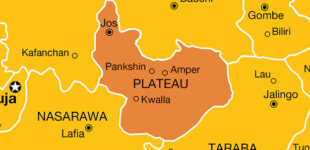Blood clotting: Should Nigeria pause, stop or continue using AstraZeneca vaccine?

Anti-vaxxers have had quite a great week following the news of a few deaths and blood clotting in Europe after the administration of the Oxford-AstraZeneca COVID-19 vaccine. One woman was reported to have died in Austria after receiving the vaccine, while two men died in Italy. A few other cases were reported.
As a result, at least 14 countries have suspended the use of the AstraZeneca vaccine, including Germany, Thailand, Norway, and Congo. Persons against the general idea of producing a vaccine in one year have latched onto this information to say they were right and these vaccines are wrong.
At this point, let me re-inform you that I am not a public health expert. And this is exactly why I am writing this; to explain to people like me, what exactly is happening, without the public health jargon. As a researcher and fact-checker, I have spoken to persons in the know and followed up with research outcomes on the subject, and here is what we know.
First, this vaccine science was not made in a year: In July 2012, Toyota, the car company, produced its 200-millionth vehicle. It took the company 76 years to attain this milestone. But according to the company, 50 million of those cars were made in the last six years and five months before July 2012.
This means Toyota, in those last 77 months of its 76-year-history at the time, produced a car “at a rate of one vehicle almost every four seconds”. Before I lose you, let me say this is how COVID-19 vaccines were made. While it may seem the vaccines were made in one year or the Toyota car in four seconds, the science that made both possible dates back decades.
The world was able to get these vaccines out in record time because the professionals had spent decades iterating vaccine production and checking out what works and what does not.
What does this clotting mean? When you get a bruise or cut and it’s bleeding, after a while, your body uses your blood to form a solid or semi-solid membrane or mesh to stop you from losing more blood. It is actually a good thing. But in this case, what is being reported alongside the vaccine administration is called deep vein thrombosis.
It is simply when this clot is created inside your vein. So think of it as a mesh created inside your veins, which blocks blood from flowing to other parts of your body as it naturally would. If blood does not flow to or away from your heart or any part of your body as it should, it can have severe consequences.
No evidence that the vaccine causes blood clotting: If your parents are anything like mine, they must have told you not to fight in school as a child. They follow up that instruction with a story of two boys who wanted to fight at school. The first boy simply pushed the second boy, and the second boy fell and died. What they did not tell us in that story is that pushing does not kill. As kids, we push each other every day at school, and nobody dies from pushing.
You would agree with me that what was needed in our parents’ story was an investigation; was it the pushing that killed the second boy or was something initially wrong? Or a combination of both.
That is the case with the vaccine. About 11 million doses of the AstraZeneca vaccine have been administered in the UK, and not a single death was recorded. In the European Economic Area, five million doses of the same vaccine have been administered and only 30 cases of blood clotting have been recorded.
Clotting happens naturally: One in every 1,000 persons gets deep vein thrombosis AKA blood clotting every year. The CDC says 900,000 people could be affected in the US every year. So in 2018, before the pandemic, cases of these clotting were reported without any vaccine administration. The UK says the cases “recorded so far are not greater than the number that would have occurred naturally”.
Why are clottings reported after vaccination? That is the question the science community is working on answering now. But in the meantime, there has been no direct link. More than 30 cases of clotting would have been recorded naturally within this period of time — with or without vaccine administration.
WHAT SHOULD NIGERIA DO NEXT?
Yes, this is the question many Nigerians care about. Should we pause the use of the AstraZeneca vaccine or should we stop it altogether or should we pretend nothing is happening concerning the vaccine elsewhere on the globe? No.
No need to pretend. Let’s work with the science. We have nearly four million doses in Nigeria. So far, 8,000 doses have been administered — which I must admit is worrying — but of that 8,000 which includes Octogenarians like Wole Soyinka, no case of clotting has been reported.
If we had other COVID-19 vaccines like Germany, it may make some sense to pause the use of AstraZeneca, while investigations are concluded in places where the clots were reported. But we do not have that luxury of time and vaccines, and our health agencies have not reported similar problems. The benefits of the COVID-19 vaccination strongly outweigh any potential complications presented by current evidence.
Follow ‘Mayowa on Twitter @OluwamayowaTJ

















There are no comments at the moment, do you want to add one?
Write a comment